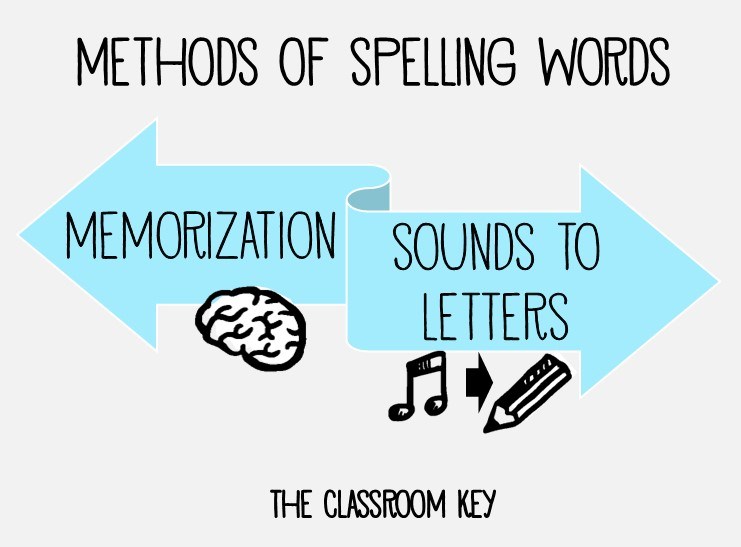Methods of Spelling Words
Saturday, October 8, 2022 by Catherine Gilliland | Spelling

For many, we learned to spell at an age so young, we remember little about the process itself. This can make it difficult to nurture the young spellers in our lives, or even give ourselves a hand when trying to remedy our own spelling deficiencies.
How do we learn to spell?
The methods are simple enough, however the process of growing skills in spelling requires patience and fortitude while we juggle our growing knowledge of the sounds we hear in words, with the symbols we use in our language to represent those sounds, along with knowledge of the smallest parts of words that can change word spellings and, therefore, their meanings, along with word origins and their impact upon spelling patterns. If that were not enough, the English language contains some sounds for which there are numerous symbols!
No wonder many children have proclaimed, "I hate spelling!" The process requires steadfast diligence, unwavering persistence, and endless patience. It stretches our working memory and our short term memory with uncomfortable tension. The reward, though, is a long term memory filled with an inventory of words with which one can effectively use to clearly communicate through written words.
Spelling is not completely memorization, although, when children are beginning to learn to read and spell, they do memorize what are commonly referred to as sight words. These words are made up of the commonly used words in children's literature and may or may not be easy to decode with phonics. When mastered, they free-up mental bandwidth to tackle harder or less frequent, albeit still important, words in their reading and spelling. These sight words are memorized through frequent exposure and practice.
Words that are not practical to memorize are best learned through a process of breaking the word into smaller sound parts, keeping the sound parts in order in one's working memory, then assigning correct symbols to communicate each of the sounds in order. By strengthening this process, students will increasingly be able to spell unfamiliar words they encounter in their lives with remarkable accuracy.
In young learners, the process of reading and spelling is most effective when carried out in tandem. Contrary to past opinion that learning to spell develops organically, research demonstrates the most effective method for learning to spell is to receive formal instruction, opportunities to practice, assessment, and feedback. Yes, reading does aid in components of learning to spell, but by itself will not produce a skilled speller. For those who can read but struggle to spell, they must return to the roots of identifying spelling patterns for the sounds in our language.


